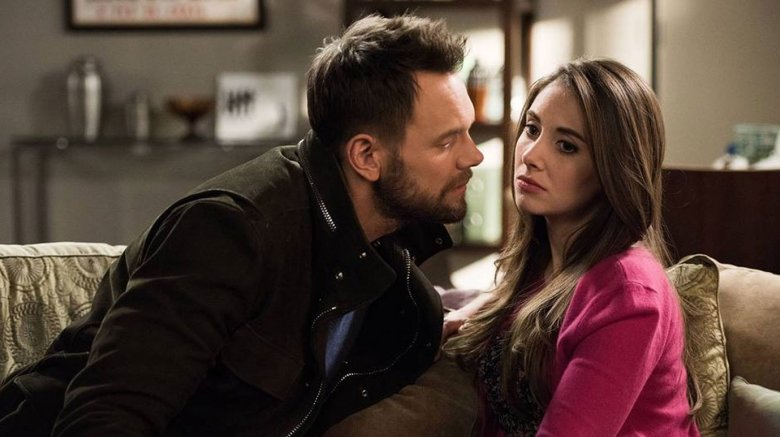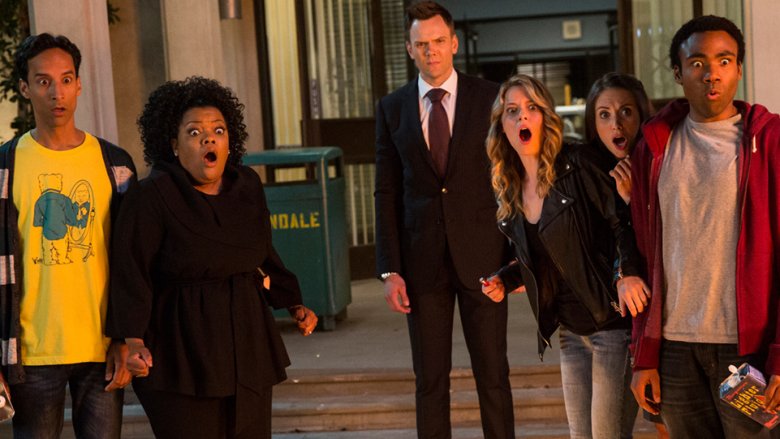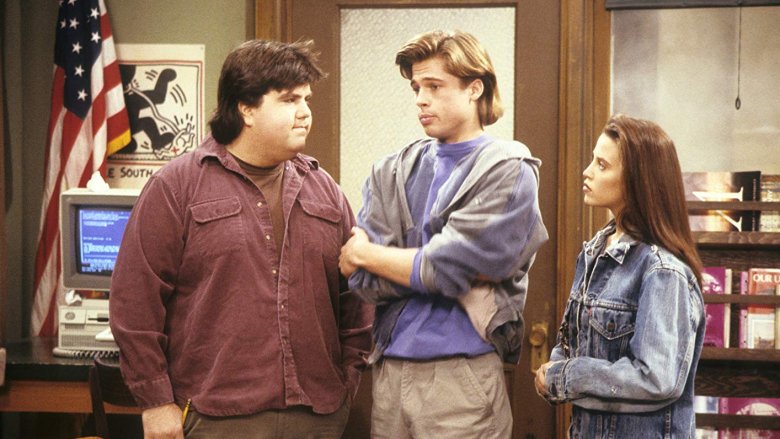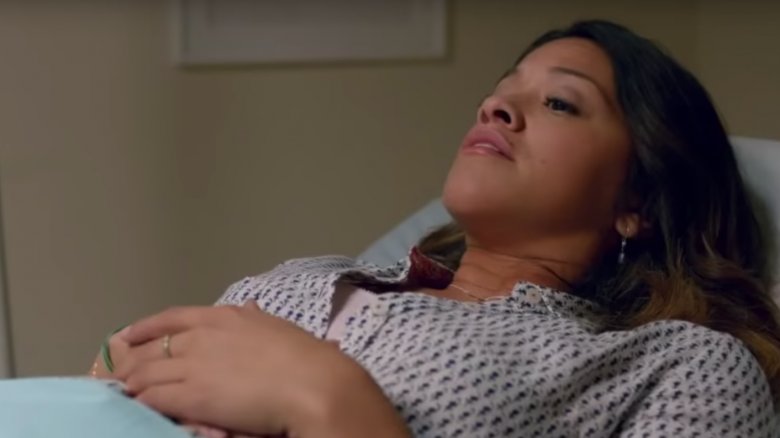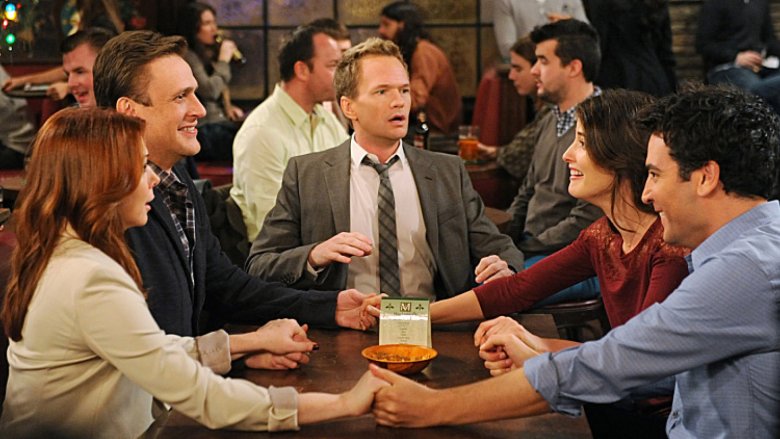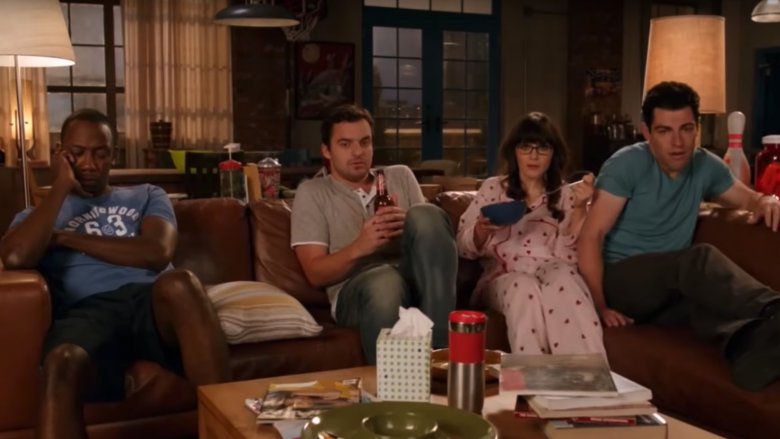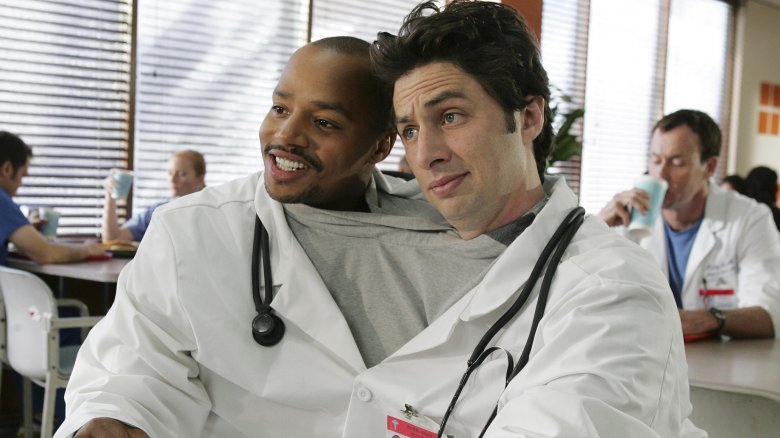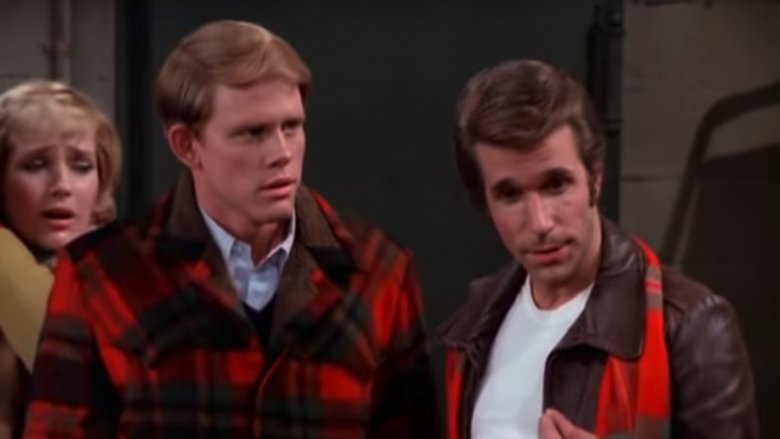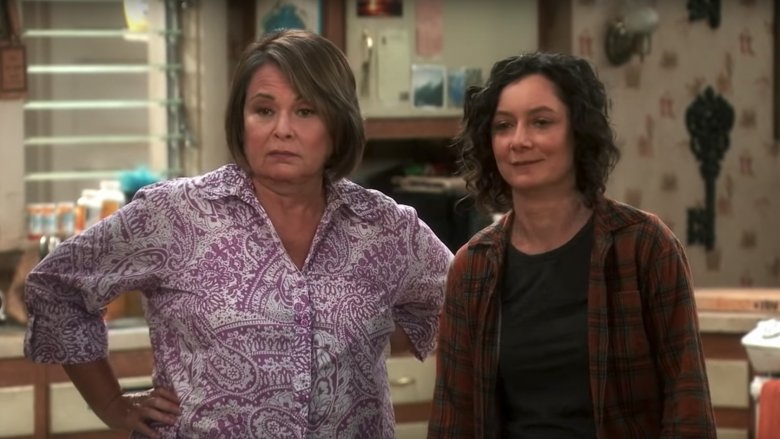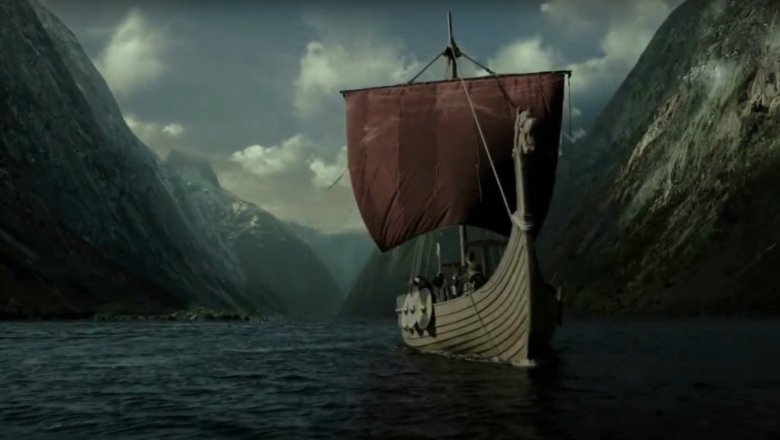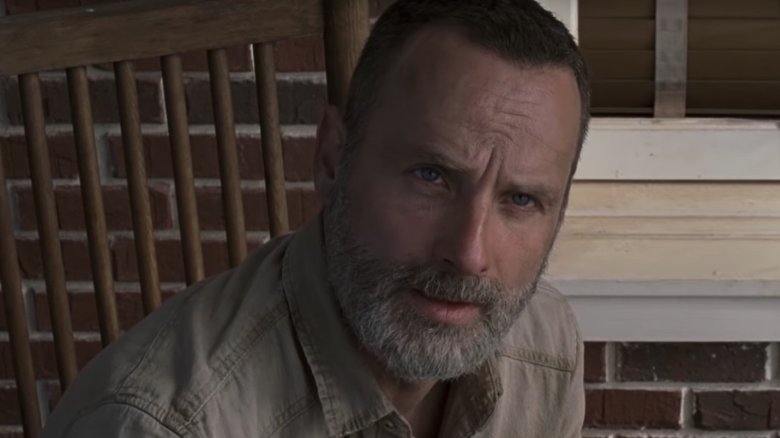TV Shows That Outgrew Their Original Premise
In the binge-watching era, we all want one thing: more. If we watch an episode or two of a new show and decide it's worth investing in, the next step is to see how many seasons we've got to plow through. After all, you'll probably have the first three or four under your belt by the weekend, right? From the 20 movies in the Marvel Cinematic Universe to The Walking Dead's ten-year plans, from The Big Bang Theory to Grey's Anatomy, just about every media juggernaut is all about quantity.
But sometimes, that quantity comes at the expense of quality. Often a show will morph, changing course dramatically during the time that it's on the air. These changes might be due to things like production snags, creator swaps, actor turnover, or declining ratings. But even when everything runs smoothly, some shows fall victim to their own success, simply going on longer than anyone expected them to. Here are some popular shows that just kept going and going until they outgrew their original premise, some by a few inches, others by miles.
Community
Raise your hand if you went to community college! Okay, now raise your hand if you went to community college for six years. What's that? No one? See, community college educations don't typically take that long. Therein lies the dilemma of NBC's cult classic Community.
The show centers on a group of misfits at Greendale, a low-caliber community college with a dean (Jim Rash) who thinks it's the best thing since sliced bread. Ex-lawyer Jeff Winger (Joel McHale), leads the ensemble on countless adventures throughout the show. Community was an immediate success upon its debut in 2009, but by the time the fifth season came back around, it started to get a little strange that all these students were still in school.
That's when the writers began bending over backwards to keep everyone they could on the set. The show was still popular (although declining ratings caused an early cancellation, followed by a revival after Yahoo bought the rights for a sixth and final season), but it couldn't last. Bringing former students back as teachers and slowly sending off key characters worked for a spell, but ultimately, the fan's mantra of "six seasons and a movie" almost came true just before the community jamboree closed up shop.
Glee
If extending one's stay in a community college to a whopping six years wasn't already bad enough, let's take the party back to high school. Running from 2009-2015 (the same exact stretch of time that Community aired—was something in the water?), the comedy-drama-musical mash-up high school spectacular known to the world as Glee was yet another show that overextended its runtime, wandering right out of the show's premise in the process.
Replete with some pretty epic musical numbers and a hefty dose of all of the high school drama one could ever wish for, the show hit a vein with viewers right from the pilot episode. The fanbase was hooked, and the show became a phenomenon (Community actually had a Christmas episode parodying Glee and there's even an entire episode about watching the show itself in the seventh season of The Office). Alas, this success became Glee's biggest problem.
The show's entire premise, following a glee club of lovable misfits, meant that once the show had run its four-year course, it would have to move in a new direction if it was going to keep going for the fans. The writers ditched the yearly protocol, picked up at random places in time, and started following the characters outside of the school. By the sixth season, reeling particularly from the tragic loss of actor Cory Monteith, the show called it quits.
Head of the Class
While we're on the education track, let's sneak one more show in here: Head of the Class. While this one's a bit older, running in the late '80s and early '90s, the show fell into the same trap as the previous two on the list. In fact, one could consider it a prototypical lesson in why you shouldn't pick an educational setting if you want your show to last for more than four years.
Head of the Class started with ten "genius" students in a high school classroom. This setting immediately even ruled out the idea of keeping students around by holding them back. They're geniuses, for goodness sake! Five seasons later, Class fell victim to the same problems as Glee, with seasons spanning different amounts of time, some students gone, others still there, and new "fresh blood" being brought in, such as the replacement of teacher Charlie Moore with Billy MacGregor. A young Brad Pitt even made one of his very first screen appearances in one episode. After the fifth year finished, though, the Class wised up and didn't overstay their welcome.
Jane the Virgin
The premise of this show sounds like the set-up to a bizarre off-color joke: a girl goes to the doctor for a checkup, and she gets artificially inseminated by accident. But you know what? It worked. Jane the Virgin was an instant hit, with Gina Rodriguez (Jane) and Justin Baldoni (Rafael) immediately stealing the show with their comedic but steamy performances. Of course, the premise here is about as shallow as it gets, and it didn't take long before the telenovela-inspired comedy-drama started off-roading into all sorts of craziness. Literally, kids are being kidnapped by cartels and guys are getting buried alive in cement before the end of the first season.
From ridiculously circular drama and love triangles to Jane's successful writing career, the story has exploded out of its original premise. It continues to contort and shift like crazy, tossing out tragic romances and a boatload of crime and murder in order to throw as many curveballs as possible while still preserving the characters that keep everyone watching. And you can bet your bottom dollar we're just going to get more of the "love, drama, crime, mystery, repeat" cycle for as long as this show remains popular.
How I Met Your Mother
This next one is an oddball, but a perfect candidate for the list. How I Met Your Mother was a fun sitcom that followed a group of post-college young adults as they settled down into life in the great metropolis of New York City. The only problem with this otherwise wide-open premise is right in the name of the show: everything about it focused on Ted Mosby (Josh Radnor) telling his children the story of how he met their mother. Simple, right? Tell that to the nine seasons and over two hundred episodes that eventually comprised the show's run.
The best part about this one is that it started with a premise that wasn't just restricting, the end of the show depended on it. So, rather than simply outgrow it and move on to other storylines, the writers had to ensure that they didn't wander too far from the beaten path or they'd never actually get to the point of the whole thing. As the seasons stretched on, it became almost as entertaining to watch their efforts to extend the seemingly simple story as it was to watch the show itself.
New Girl
New Girl seems like a simple pitch: a show about an innocent, fairly naive girl just trying to live life as best she can. Not only that, it's got Zooey Deschanel in the lead role. She's cute, everyone likes her, the show's bound to be a hit. And sure enough, it was. Facing the tide of rising popularity and that love-hate relationship with the demand for "more, more, more," the writers began looking farther and farther afield for content beyond the confines of Jessica Day's lovable but somewhat limited character.
As time marched on and the seven seasons of the show played out, the premise began to shift (or at least widen) to include all the friends who lived in "The Loft" with Jess. By the end, the theme song's refrain of "Who's that girl? It's Jess!" hardly seemed relevant, as everyone tuned in to see the latest happenings with Schmidt, Cece, Winston, Coach, and Nick Miller. There was even a six-episode stint in season five where Jess was "gone on jury duty" (in actuality, Deschanel was out on maternity leave), during which Megan Fox was brought in as the character Reagan to help fill the gap. Strange substitutes aside, though, by the end of the show it became clear that The Loft may have been a more apt title than New Girl.
Scrubs
The dawn of the 21st century gave us Y2K, cell phones, the 24-hour news cycle, and Scrubs. Another cult classic, this time set in the medical world, Scrubs was a magical ride seen through the eyes of a group of medical interns at Sacred Heart Hospital. Praised for its quick wit, slapstick comedy, outrageous fantasy sequences, and surprisingly effective drama, the show was extremely popular for its full eight-season run.
That's right, eight seasons. What's that? There's a ninth season? No, no, you must be talking about something else. That last episode of season eight ended so beautifully, so perfectly, surely no one was foolish enough to revive something with such well-executed closure.
Except, yes, they went there. Bidding farewell to most of its main characters, Scrubs returned with a new med school setting and a new cast of student characters in what has got to be one of the greatest face-plants in television history. Needless to say, season nine took a great show that had stayed on point for so long and went way off the trail of the original premise. It didn't work—after one much-hated season, the plug was mercifully pulled.
Happy Days
Shows that center on families tend to weather the changes of time pretty well. There are tons of classics that have followed this formula to great success, like The Brady Bunch, Everybody Loves Raymond, The Cosby Show, and Full House, just to name a few. But there are others that can't stick to the concept even when it's that simple. Case in point: Happy Days. With eleven seasons and over 250 episodes, the show was in it for the long haul, and it left an indelible mark on television history, to say the least.
However, we're talking about premises here, and as far as the premise for Happy Days goes, things didn't stay so strong and steady over the time the show was on the air. When ratings began to dip, the entire focus was broadened from the idealized life of the Cunningham family to a colorful supporting cast. Most notably, Henry Winkler's breakout character Arthur "Fonzie" Fonzarelli became a more central figure, and from there the show was off to the races. However, the premise had completely changed from a sitcom about a classic American family to what might as well have been called The Fonz Show. In fact, Fonzie went down in history as the very symbol of a show going off the rails when he became the first TV icon to literally jump the shark.
Roseanne/The Conners
Speaking of long-running classics, who could forget Roseanne? For nine long seasons, the show followed the life of the Conners, a relatable working-class family in the Midwest. It was a huge hit, and has been widely recognized as one of the greatest sitcoms to ever grace our television sets.
The show's protagonist was Roseanne Conner (Roseanne Barr), who shepherded the series through its initial nine-season run throughout the late '80s and into the '90s. Rosanne remained a success to the end, making it a natural candidate to join the recent wave of nostalgic television revivals. The tenth season, which aired in March of 2018, was a big hit, and an 11th season was immediately booked.
Not long after this, though, Barr got into hot water for some racist tweets. ABC immediately cancelled plans to continue the reboot...sort of. The show would go on, but with a rather dramatic new trajectory. Retooled as The Conners, the show returned to find its titular family coping with Roseanne Conner's off-screen death by opioid overdose. Talk about leaving an original premise behind. Maybe they should have just left it at nine seasons.
Vikings
In recent years, the History Channel has made a pretty concerted effort to retool its content in an effort to appeal to more than just history buffs. Along with reality shows like the tremendously popular Pawn Stars, they also created the drama miniseries Hatfields & McCoys in 2012, which consisted of three episodes and was a big hit. So big, in fact, that it spurred them to steer into deeper waters.
Thus, a year later, they launched a new dramatized series, Vikings. The thing is, the show was originally slated to be a nine-part miniseries. Nine parts? Sure, it was triple the length of Hatfields & McCoys, and even the New York Times found the miniseries to be "ambitious," but the truth is, it was really just the tip of the iceberg.
When you start with a nine-episode plan, your premise is fairly restricted. What's the most important thing you want to depict? Do you want to take a surface glance at a long timeline, or thoroughly explore a shorter period? Regardless, the whole project was clearly coming in on a small scale. All that changed, though, when the series proved such a hit that the History Channel ordered another season...and another, and another. With the fifth season ongoing and a sixth one already in the works, the show has absolutely exploded from its original premise and is currently running along an open-ended track that will probably only end when its ratings inevitably drop sooner or later.
The Walking Dead
Here's one that's been causing all sorts of buzz ever since Rick Grimes made his final farewell to the flagship series, only to be followed up by a multi-movie announcement that totally overhauls the future of The Walking Dead universe. While there can be no doubt that the show has been a huge success—and had a huge impact on the world of modern television, too—that doesn't mean its exactly stuck to the premise.
Sure, the show started with the basic premise of people fighting to survive a zombie apocalypse and yes, that's still the focus. But there are some other factors at work here as well. For example, the show primarily followed former sheriff's deputy Rick Grimes, and as we all know now, he's gone. It also follows the long-running comic series created by Robert Kirkman and Tony Moore...except when it doesn't. In the comics, Shane dies in the first issue, Andrea lives much longer (and is romantically involved with Rick), and Carl is still alive and kicking, as well.
Even if you take both the show and the comic series together, things have been steadily shifting from the zombie survival vibe for a long time now. Though the famed "walkers" are still an integral part of the show, they are more and more of a side issue as everyone's attention becomes more and more focused on rebuilding civilization and the new world order. Even some devoted fans are starting to wonder if it's time to wrap things up.
